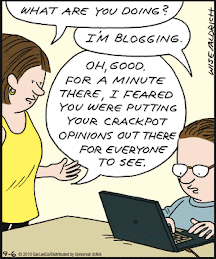I had the distinct pleasure of spending parts of the last two days with Roger Ingram, who was the guest artist at the Schoolcraft Jazz Studies Program’s Up Jumped Spring concert yesterday. Roger is a high register trumpeter who played on the road for 35 years with Tom Jones, Connie Stevens, Ray Charles, Frank Sinatra, Maynard Ferguson, and was the lead trumpeter for the Woody Herman and Harry Connick big bands.
Roger is a great player, and a really nice, very encouraging person.
Here's one of the songs Roger played with us, as recorded with a different band.
Here's one of the songs Roger played with us, as recorded with a different band.
Roger Ingram Live at the College Hideaway with the Jim Stewart Orchestra
At his clinic yesterday, he discussed playing in the high register, and quite a few times mentioned counter-intuitive thinking. The first requirement for having a high register is having a strong, secure low register. As Bud Brisbois, Stan Kenton’s lead trumpet player in the late 50’s, told him, you can’t build a skyscraper on a weak foundation.
So what I take from this is that unless you really own the bottom of your horn - from low concert E to high C, you need to devote your efforts there before embarking on the high road.
Once you have that foundation, you can, as Roger’s friend and past guest artist Wayne Bergeron put it, “discover,” not “develop” the high register. Wayne’s idea is that when you have this firm foundation, you then have the playing strength to be able to explore and map the new region above. Counter-intuitive thinking.
Something that was a real eye-opener for me is that playing high requires less air, not more. Bud Brisbois told Roger that if you use a tablespoon full of air to play high C, use a half tablespoon to play the F above, and a teaspoon full for double high C. If you fill your lungs to capacity and shove a lot of air through the horn attempting to play high, you’re dooming yourself to failure. Counter-intuitive thinking.
An exercise he recommended for discovering the upper region is to gliss from C to high C and back [Bb on trombone]. In demonstrating, he took a moderate tempo - about 1 second for each leg of the excursion. Repeat the glissing exercise each half step higher, as far as you can go. Recognize and accept that this will sound terrible. Allow that to happen. You aren’t going for sound, you’re going for a result. Tone will come later. If you have a good foundation, and do this for 15 minutes every day for one month, you should be able to play up to double high C at the end of that time. This approach builds in muscle memory for the location of the partials, and helps to internalize the control needed to play reliably in the high region. In his demonstration, he did not work hard, and it actually looked pretty effortless.
I’ve had some success building my upper register over the last year, but still would like to expand the next half octave to double high C [concert Bb,] and certainly need to discover control in my existing high range. I’m excited to embark on this new adventure.
One last parting counter-intuitive thought. Roger said he really enjoys playing in the middle register!


No comments:
Post a Comment